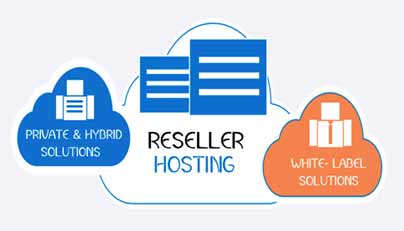Reseller hosting is a business development model in which an organization leases web space from a main hosting provider. The Web space is packaged and rebranded. The primary hosting provider may provide a private label control panel and technical support for resellers, but the reseller is ultimately reliant on the primary host for additional Web space and technical support. The questions you need to ask yourself before becoming a reseller are listed below.
Questions to ask before becoming a reseller

If you’re looking to become a reseller host, it’s important to understand exactly what you’re getting into. A reseller business can be very lucrative and fulfilling, but there are several questions you should be asking yourself before you jump in. If you don’t know what you’re doing, it can turn out to be a nightmare. To avoid pitfalls, make sure you understand the business thoroughly.
The customer service aspect of hosting is another important area to understand. Many reseller hosts don’t offer 24-hour support, which can cause significant delays. Not only will your customers feel unsatisfied, but they may also feel that the reseller is slow and sluggish. Even if you’re able to resolve a customer’s problem on your own, you’ll probably struggle to deal with complaints.
Choosing a reseller hosting provider
A good reseller hosting provider will give you the flexibility to sell other features to your clients, which can help you make some extra money. You should look for a control panel that has web applications such as WordPress, Joomla, ZenCart, and Drupal as standard. The best reseller hosting Australia providers should also offer SSL certificates and other features that make your work as a reseller easier. If you are just starting out, you might want to take a look at the offerings of SiteGround to find out more.
The right reseller hosting provider will provide comprehensive technical support. Some resellers even offer unlimited service plans. You may also want to look for a reseller that offers customer support and can help you with client requests. Fortunately, many of today’s reseller hosting provider’s offers full technical support, so it’s important to do your homework before you chooses a reseller. You should also look for a reseller that has comparable costs and plans to your own.
Setting business goals

Before you start a reseller hosting business, it’s important to decide on your business’s target market. This could include anyone with an online presence, from bloggers to designers. Or, you might choose to target a more specific niche like barbers or restaurateurs. Whatever you decide, you must set business goals that you can measure against over time. This will keep you motivated as you work to achieve these goals.
Conclusion;
Identifying your target market is a critical part of creating a marketing strategy for your reseller business. A solid marketing plan will include content creation, ongoing social media engagement, and management of PPC ads. Creating a marketing plan is essential, as one mistake can waste a lot of time and money. Fill your content calendar at least two months in advance, as well as set monthly or weekly postings. Remember that a successful reseller hosting business is all about achieving its goals.





